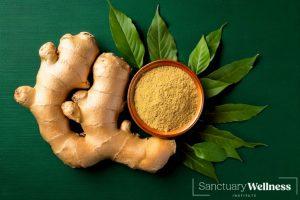- John DiBella
- Published: May 21, 2025
- Fact-checked by Dr. Desiree Granados

The carnivore diet has made waves in the health and fitness world, thanks in large part to high-profile advocates like Joe Rogan. With promises of increased energy, mental clarity, and improved physical performance, many have wondered: does the carnivore diet also boost testosterone?
In this blog, we’ll break down the science behind this trending diet, explore the connection between ketosis and hormone production, and look at whether the carnivore diet can help boost testosterone.
What Is the Carnivore Diet?
The carnivore diet is exactly what it sounds like: a way of eating that includes only animal-based foods such as meat, eggs, fish, and animal fats. That means no fruits, vegetables, grains, or even nuts.
This extreme form of low-carb dieting pushes the body into ketosis, a metabolic state in which it burns fat for energy instead of carbohydrates. In that way, it’s similar to the keto diet, but even more restrictive. While keto allows for some plant-based carbs, the carnivore diet eliminates them entirely.
The Carnivore Trend
Perhaps the most well-known endorsement of the carnivore diet came from Joe Rogan, who publicly shared his experience after following the diet for 30 days. According to Rogan, he lost 12 pounds, gained muscle, improved his mental focus, and just felt more “healthy”.
Social media posts from Rogan’s instagram illustrate the potential testosterone-enhancing effects of the carnivore diet. The logic? High protein and fat intake fuels muscle growth and hormone production. And by cutting out processed carbs and sugar, insulin levels stabilize, possibly boosting testosterone.
While these observations are compelling, it’s important to recognize that anecdotes are not the same as scientific evidence. Also note that Rogan’s routine also includes weightlifting, sauna use, cold plunges, supplements, and other factors that likely contributed to his results.
Ketosis and Testosterone: Is There a Link?
There’s some interesting research about low-carb diets like keto and their effect on testosterone. Because testosterone is synthesized from cholesterol, diets rich in healthy fats may provide the raw materials the body needs to support hormone production. This includes saturated fats found in red meat and eggs, which are carnivore diet staples.
A meta-analysis of 6 studies, published in 2021, suggest that low-fat diets can lower testosterone, while higher-fat, low-carb approaches may help maintain or even increase it. Additionally, ketosis may reduce inflammation and stabilize insulin, which are both favorable for hormone balance.
However, not all ketosis is beneficial. If you’re under-eating calories or lacking key micronutrients like zinc, magnesium, or vitamin D, your testosterone levels could actually drop, regardless of your macronutrient breakdown.
What Does the Science Say?
Despite growing interest, scientific studies on the carnivore diet are extremely limited. Most available research focuses on the ketogenic diet, which allows more dietary variety than carnivore.
What we do know:
- High-fat diets (especially those rich in saturated fat) can support testosterone production.
- Weight loss, particularly in overweight individuals, can improve testosterone levels.
- Chronic caloric restriction, overtraining, or nutrient deficiencies can tank hormone levels—regardless of diet type.

Bottom Line: Does the Carnivore Diet Boost Testosterone?
It might; at least temporarily. The high intake of cholesterol and saturated fat, plus a reduction in insulin and inflammation, could support testosterone production in the short term. This is especially likely for those recently switching from high-sugar, highly processed diets. Many people also lose weight and reduce stress on their bodies, both of which can improve hormone balance.
But the carnivore diet’s effect on testosterone might start to wane if micronutrient intake isn’t addressed. Certain vitamins and minerals important for testosterone production (like vitamin C and magnesium) are largely absent from an all-meat diet. Without variety and key micronutrients, testosterone levels could plateau or even decline.
Everyone’s body responds differently, and what works for a celebrity or influencer may not work for the average person, especially without proper guidance from a doctor or nutritionist.
Other Ways to Boost Testosterone
If you’re looking to support healthy testosterone levels beyond diet alone, here are additional proven strategies:
- Exercise regularly: Focus on resistance training, such as weightlifting or high-intensity interval training (HIIT), both of which have been shown to naturally elevate testosterone.
- Eat a balanced, nutrient-rich diet: Incorporate foods high in Zinc, Vitamin D, and Magnesium. Remember that alcohol, processed foods, and high-sugar foods are considered “testosterone killing-foods” if consumed in excess.
- Consider testosterone replacement therapy (TRT): For those with consistently low testosterone confirmed through blood tests, TRT may be a viable option. Always consult a healthcare provider to evaluate risks and benefits.
- Get enough quality sleep: Aim for 7–9 hours of uninterrupted sleep each night. Poor sleep is directly linked to lower testosterone production.
- Reduce stress levels: Chronic stress raises cortisol, a hormone that suppresses testosterone. Practices like meditation, deep breathing, regular exercise, and time in nature can help manage stress.
- Take targeted supplements: Some natural supplements might support testosterone, such as Zinc, Vitamin D3, Magnesium, Ashwagandha, and antioxidants like Vitamins A, C, and E.
These methods can work alone or alongside dietary changes like the carnivore or ketogenic diet. Just remember: consistency, proper nutrition, and medical guidance are key to seeing lasting hormonal benefits.
Some people even think that things like sunbathing, cold showers, and even sexual activity can boost testosterone. Check out our “Weird Testosterone Boosters: Myths and Facts” to learn more.
Conclusion
The carnivore diet is one of the most extreme elimination diets out there. While it might offer some hormonal benefits, especially in the form of short-term testosterone support, there’s not enough clinical evidence to recommend it as a long-term solution for boosting testosterone.
If you’re considering the carnivore for hormonal health, it’s crucial to work with a knowledgeable healthcare provider who can help you monitor key biomarkers and ensure you’re not doing more harm than good.
As with any major dietary shift, it’s not just about what you cut out; it’s about what you keep in, and how well your diet supports your overall health.
How we reviewed this article:
- Kiranjit K. Dhillon, Sonu Gupta (2023). Biochemistry, Ketogenesis
https://www.ncbi.nlm.nih.gov/books/NBK493179/ - Joseph Whittaker, Kexin Wu (2021). Low-fat diets and testosterone in men: Systematic review and meta-analysis of intervention studies
https://pubmed.ncbi.nlm.nih.gov/33741447/ - Amber O’Hearn (2020). Can a carnivore diet provide all essential nutrients?
https://pubmed.ncbi.nlm.nih.gov/32833688/ - Jacob M Wilson, et al. (2020). Effects of Ketogenic Dieting on Body Composition, Strength, Power, and Hormonal Profiles in Resistance Training Men
https://pubmed.ncbi.nlm.nih.gov/28399015/ - Okelue E Okobi, et al. (2024). Impact of Weight Loss on Testosterone Levels: A Review of BMI and Testosterone
https://pubmed.ncbi.nlm.nih.gov/39840189/
Current Version
May 21, 2025
Written By
John DiBella
Fact-checked By
Dr. Desiree Granados
Editorial Process
Our Editorial Process

John DiBella is the co-founder and CEO at The Sanctuary Wellness Institute. His goal is to foster healthier lifestyles to improve individuals’ quality of life and health span through online medical and non-medical services. When he’s not writing health & wellness articles for The Sanctuary, he enjoys hiking, camping, surfing and sailing.







